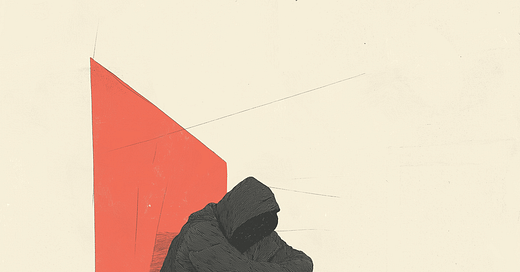In a nation as resourceful and wealthy as ours, the persistence of widespread homelessness is not just a tragedy—it’s a failure of imagination.
We spend billions annually on emergency shelters, crisis policing, public sanitation, and uncompensated healthcare tied to homelessness. Despite this, the problem continues to grow, sprawling into tents, tarps, and encampments in almost every major city. Meanwhile, our shared spaces fall into neglect—graffiti creeps up walls, sidewalks crack underfoot, trash litters streets and parks. Public frustration grows. Compassion wears thin. But what if we flipped the script?
What if, instead of treating people experiencing homelessness as passive recipients of charity—or worse, as burdens to be managed—we invited them to become active participants in restoring the very communities they live in?
This isn’t just a logistical question. It’s a psychological one.
People need to feel useful. They need to feel seen. They need to feel like they matter.
Without that, no amount of food, shelter, or services will fill the emptiness that comes from being discarded by society. When someone loses their home, they often lose more than shelter—they lose identity, routine, and a sense of purpose. Days blur together. Hope slips away. That mental erosion is harder to see, but it’s every bit as real.
Neuroscience backs this up. Pride and dignity are not luxuries. They are vital to our psychological well-being. Research shows that a sense of purpose activates the brain’s reward systems, reinforcing motivation and self-worth. When people contribute meaningfully to a community, they begin to reclaim their identity—not just as someone in need, but as someone of value.
This is why I believe we need a radical rethink of homelessness—not as a crisis to be endlessly managed, but as an opportunity to build a new kind of social contract.
Call it “service for support.” A voluntary program where individuals experiencing homelessness can opt into community projects—trash pickup, graffiti removal, park restoration, urban farming, light construction, or neighborhood beautification. In return, they receive stable housing, mental health support, addiction treatment if needed, food, and training for longer-term employment.
Think of it as a modern-day Works Progress Administration (WPA)—but for the 21st century.
During the Great Depression, FDR’s New Deal put over 8 million Americans to work. They built roads, schools, bridges, libraries. But more than that, they built pride—pride in effort, pride in contribution, pride in one another. We need that spirit again, not just because it worked then, but because it speaks to something timeless: the human need to matter.
This is not forced labor. This is not a punitive system. This is an invitation—a structured way out of the spiral of despair. A way back to a life of meaning and connection.
And it’s not a pipe dream. Programs across the country are quietly proving the concept:
The Doe Fund in New York City puts formerly homeless individuals to work cleaning streets and provides housing, counseling, and job training. The recidivism rate among graduates is remarkably low.
Community First! Village in Austin, Texas, offers permanent housing alongside small-scale employment opportunities—from gardening to blacksmithing—fostering a deep sense of belonging.
San Diego’s “Wheels of Change” program pays unhoused people to clean up the city while connecting them to wraparound services.
Alameda County’s “Dig Deep Farms” offers jobs in regenerative agriculture to those coming out of incarceration or homelessness, allowing people to literally rebuild their lives from the ground up.
The common thread? These programs don’t just give aid. They give agency.
Critics may raise concerns about exploitation or legality—but those are solvable design challenges. With the right safeguards, this model can empower rather than exploit. In fact, it could reframe public opinion—away from resentment and toward shared investment. People want to help—but they also want to see progress. This offers both.
We cannot continue down the current path—where tent cities expand, services are overwhelmed, and our public commons become symbols of failure. Nor can we return to outdated models that warehouse people without addressing the deeper loss of identity and purpose.
We need to think bigger. We need to think more humanely. We need to stop simply managing homelessness and start ending it—with courage, creativity, and above all, belief in the value of every person.
Because in the end, the antidote to homelessness isn’t just housing. It’s hope.
And hope begins with purpose.
We’ve tried just about everything—except reimagining what it really means to help people find their footing again. It’s not just about housing. It’s about identity, connection, and the belief that every person still has something to give.
If this idea spoke to you—if it challenged how you’ve been thinking about homelessness—share it. Start a conversation. Let’s stop treating this as an unsolvable problem and start building real, human-centered solutions.
Subscribe for more episodes like this, and as always—stay principled, stay engaged, and never forget: the path out of despair begins with dignity. And dignity begins with purpose.
Until next time.












Share this post